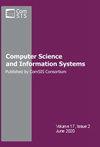Efficient neural network accelerators with optical computing and communication
IF 1.2
4区 计算机科学
Q4 COMPUTER SCIENCE, INFORMATION SYSTEMS
引用次数: 0
Abstract
Conventional electronic Artificial Neural Networks (ANNs) accelerators focus on architecture design and numerical computation optimization to improve the training efficiency. However, these approaches have recently encountered bottlenecks in terms of energy efficiency and computing performance, which leads to an increase interest in photonic accelerator. Photonic architectures with low energy consumption, high transmission speed and high bandwidth have been considered as an important role for generation of computing architectures. In this paper, to provide a better understanding of optical technology used in ANN acceleration, we present a comprehensive review for the efficient photonic computing and communication in ANN accelerators. The related photonic devices are investigated in terms of the application in ANNs acceleration, and a classification of existing solutions is proposed that are categorized into optical computing acceleration and optical communication acceleration according to photonic effects and photonic architectures. Moreover, we discuss the challenges for these photonic neural network acceleration approaches to highlight the most promising future research opportunities in this field.具有光计算和通信功能的高效神经网络加速器
传统的电子人工神经网络加速器主要通过结构设计和数值计算优化来提高训练效率。然而,这些方法最近在能量效率和计算性能方面遇到了瓶颈,这导致人们对光子加速器的兴趣增加。具有低能耗、高传输速度和高带宽的光子体系结构被认为是计算体系结构的重要组成部分。为了更好地理解用于人工神经网络加速的光学技术,我们对人工神经网络加速器中的高效光子计算和通信进行了全面的综述。对相关的光子器件在人工神经网络加速中的应用进行了研究,并根据光子效应和光子结构将现有的解决方案分为光计算加速和光通信加速。此外,我们讨论了这些光子神经网络加速方法面临的挑战,以突出该领域最有希望的未来研究机会。
本文章由计算机程序翻译,如有差异,请以英文原文为准。
求助全文
约1分钟内获得全文
求助全文
来源期刊

Computer Science and Information Systems
COMPUTER SCIENCE, INFORMATION SYSTEMS-COMPUTER SCIENCE, SOFTWARE ENGINEERING
CiteScore
2.30
自引率
21.40%
发文量
76
审稿时长
7.5 months
期刊介绍:
About the journal
Home page
Contact information
Aims and scope
Indexing information
Editorial policies
ComSIS consortium
Journal boards
Managing board
For authors
Information for contributors
Paper submission
Article submission through OJS
Copyright transfer form
Download section
For readers
Forthcoming articles
Current issue
Archive
Subscription
For reviewers
View and review submissions
News
Journal''s Facebook page
Call for special issue
New issue notification
Aims and scope
Computer Science and Information Systems (ComSIS) is an international refereed journal, published in Serbia. The objective of ComSIS is to communicate important research and development results in the areas of computer science, software engineering, and information systems.
 求助内容:
求助内容: 应助结果提醒方式:
应助结果提醒方式:


